Peisheng Yu
PAR: Political Actor Representation Learning with Social Context and Expert Knowledge
Oct 15, 2022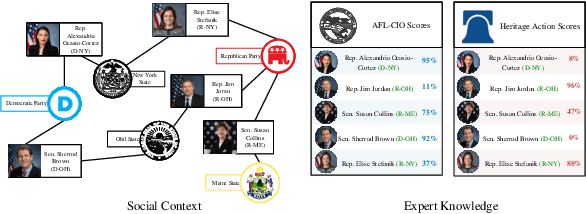
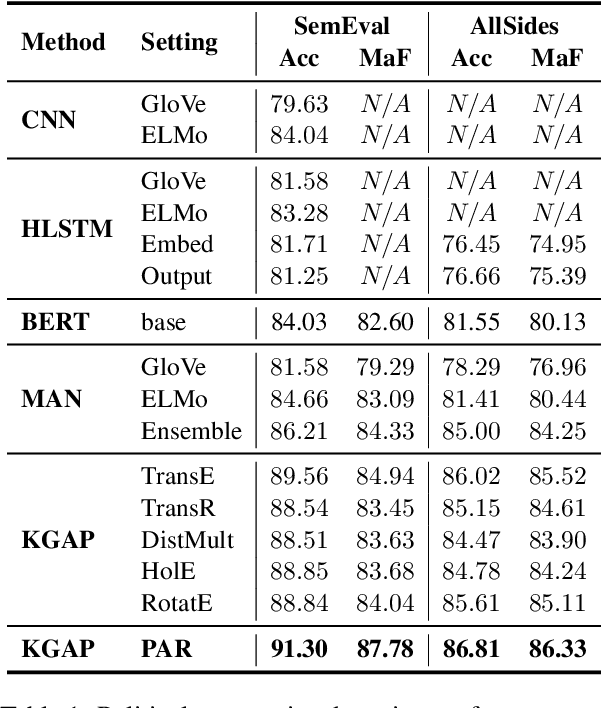
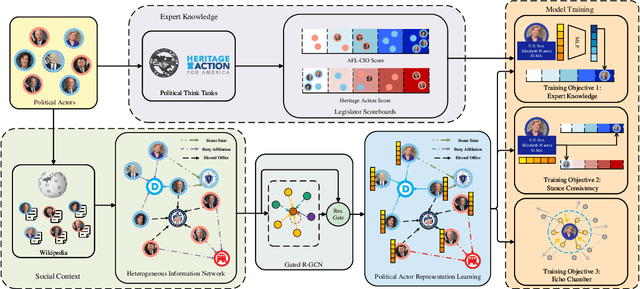
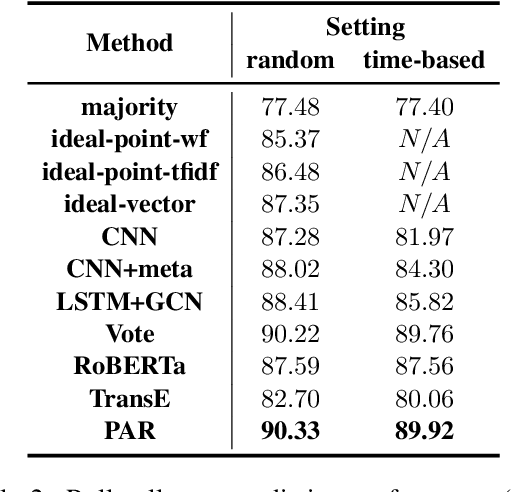
Abstract:Modeling the ideological perspectives of political actors is an essential task in computational political science with applications in many downstream tasks. Existing approaches are generally limited to textual data and voting records, while they neglect the rich social context and valuable expert knowledge for holistic ideological analysis. In this paper, we propose \textbf{PAR}, a \textbf{P}olitical \textbf{A}ctor \textbf{R}epresentation learning framework that jointly leverages social context and expert knowledge. Specifically, we retrieve and extract factual statements about legislators to leverage social context information. We then construct a heterogeneous information network to incorporate social context and use relational graph neural networks to learn legislator representations. Finally, we train PAR with three objectives to align representation learning with expert knowledge, model ideological stance consistency, and simulate the echo chamber phenomenon. Extensive experiments demonstrate that PAR is better at augmenting political text understanding and successfully advances the state-of-the-art in political perspective detection and roll call vote prediction. Further analysis proves that PAR learns representations that reflect the political reality and provide new insights into political behavior.
Encoding Heterogeneous Social and Political Context for Entity Stance Prediction
Sep 07, 2021

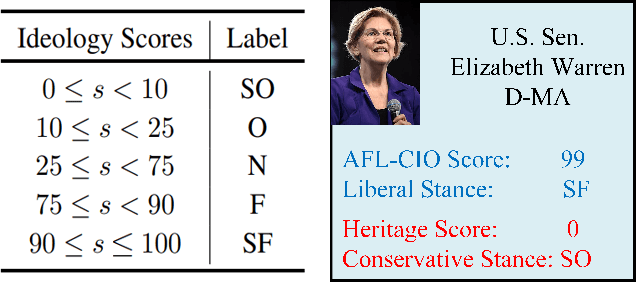
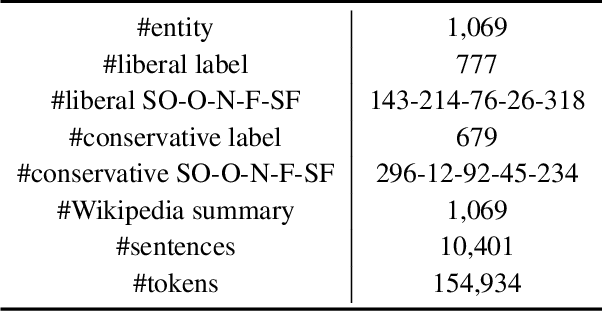
Abstract:Political stance detection has become an important task due to the increasingly polarized political ideologies. Most existing works focus on identifying perspectives in news articles or social media posts, while social entities, such as individuals and organizations, produce these texts and actually take stances. In this paper, we propose the novel task of entity stance prediction, which aims to predict entities' stances given their social and political context. Specifically, we retrieve facts from Wikipedia about social entities regarding contemporary U.S. politics. We then annotate social entities' stances towards political ideologies with the help of domain experts. After defining the task of entity stance prediction, we propose a graph-based solution, which constructs a heterogeneous information network from collected facts and adopts gated relational graph convolutional networks for representation learning. Our model is then trained with a combination of supervised, self-supervised and unsupervised loss functions, which are motivated by multiple social and political phenomenons. We conduct extensive experiments to compare our method with existing text and graph analysis baselines. Our model achieves highest stance detection accuracy and yields inspiring insights regarding social entity stances. We further conduct ablation study and parameter analysis to study the mechanism and effectiveness of our proposed approach.
 Add to Chrome
Add to Chrome Add to Firefox
Add to Firefox Add to Edge
Add to Edge